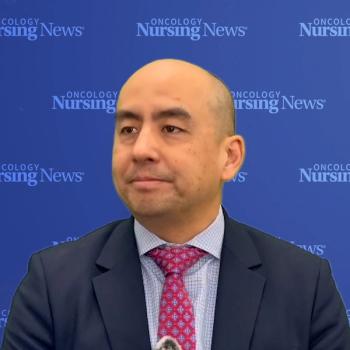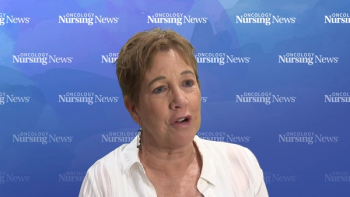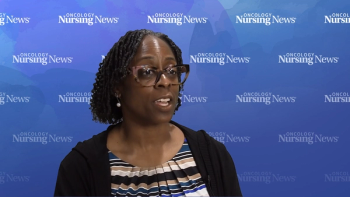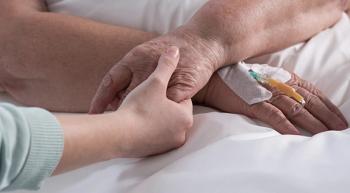
Michelle Kirschner, MSN, RN, ACNP, APRN-BC, explains how educating patients about the Breast Cancer Index can support informed endocrine therapy decisions.

Michelle Kirschner, MSN, RN, ACNP, APRN-BC, explains how educating patients about the Breast Cancer Index can support informed endocrine therapy decisions.

Survivorship expert Michelle Kirschner, MSN, RN, ACNP, APRN-BC, says that “doable changes” can enhance the lives of patients surviving cancer.

Explore essential mental health support strategies for older adults with cancer, addressing grief, community resources, and tailored care approaches.

Oncology nurses can assess patients’ risk factors and advocate for preventive strategies that protect kidney function during cisplatin therapy.

Getting to the root of patients’ issues can provide support for their cancer journey through accessible means, says Heather Jackson, PhD, APRN, FNP-BC, NEA-BC, FAA-NP.

Oncology nurses can help patients and families understand the expectations of pediatric brain cancer survival, says Kasey Rangan, MSN, CPNP-PC, CPHON.

Oncology nurses can play a key role in educating patients and supporting clinical trial participation for this new treatment option.

Oncology nurses and APPs can help reduce discrimination faced by patients with cancer who are members of the LGBTQIA+ community.

Patients with stage III and high-risk stage II colon cancer who participated in an exercise program saw improved disease-free and overall survival.

Patients with stage III resected colon cancer had lower risk of death with less inflammatory diets and more regular physical activity.

The PRECURSOR intervention appeared feasible/acceptable, suggesting a need for patient-centered conversation in incurable gynecologic cancer treatment.

Sessions addressing supportive care needs for patients with cancer on early phase clinical trials appeared feasible and acceptable in a prospective study.

Oncology nurses and APPs can enhance patients’ comfort by counseling patients on what integrative care is and working to make those options accessible.

Debriefing after patient loss, supporting patients at the end of life, and finding outlets outside of work can help oncology nurses avoid burnout.

Oncology nurses and APPs provide support and can help to facilitate conversations with patients and families during end-of-life care.

Alternating post-HCT care between specialized facilities and local cancer centers produced noninferior non-relapse mortality and similar quality of life to usual care.

Working with multidisciplinary teams and educating patients are key to treating patients with cancer while navigating newly approved treatments.

Working with interdisciplinary teams and nurse navigators to coordinate care across specialties is a facet of oncology nursing that may be overlooked, says an expert.

Similar to financial toxicity, time toxicity can have a profound impact on a patient’s quality of life.

Adolescent and young adult survivors of cancer face increased substance use risks due to developmental delays, limited support, and coping mechanisms, necessitating targeted prevention.

Device programming encounters near the end of life occurred in nearly half of patients with ICDs, offering a potential opportunity for goals-of-care discussions.

Oncology nurses and APPs should prioritize active listening and deeper patient engagement to build trusting, long-term relationships with patients with MPNs.

Analysis of two trials indicates psilocybin-assisted psychotherapy may benefit the mental health of patients with cancer.

"When most people hear the words palliative care, they immediately think about hospice or end-of-life care. This includes most medical professionals."

Emotional intelligence becomes a critical tool for oncology nurses to sharpen when having difficult conversations with patients who received a terminal cancer diagnosis.

Early palliative care improved quality-of-life indicators including coping skills, self-management, and 2-year survival rate in adults with advanced cancer.

Oncology nurses can provide patient and provider education about the benefits of stepped palliative care.

An oncology nurse's experience with her mother's cancer and her own BRCA2 diagnosis shapes her approach to patient care.

Assisted reproductive techniques may be safe for patients with BRCA-mutated breast cancer, according to an ESMO study.

For oncology nurses, it is important to advocate for patients and families through ongoing assessments for caregiver burden, financial toxicity, and effective communication that lead to poor decision-making.